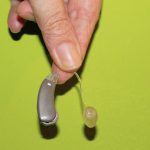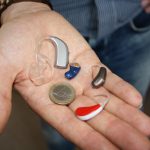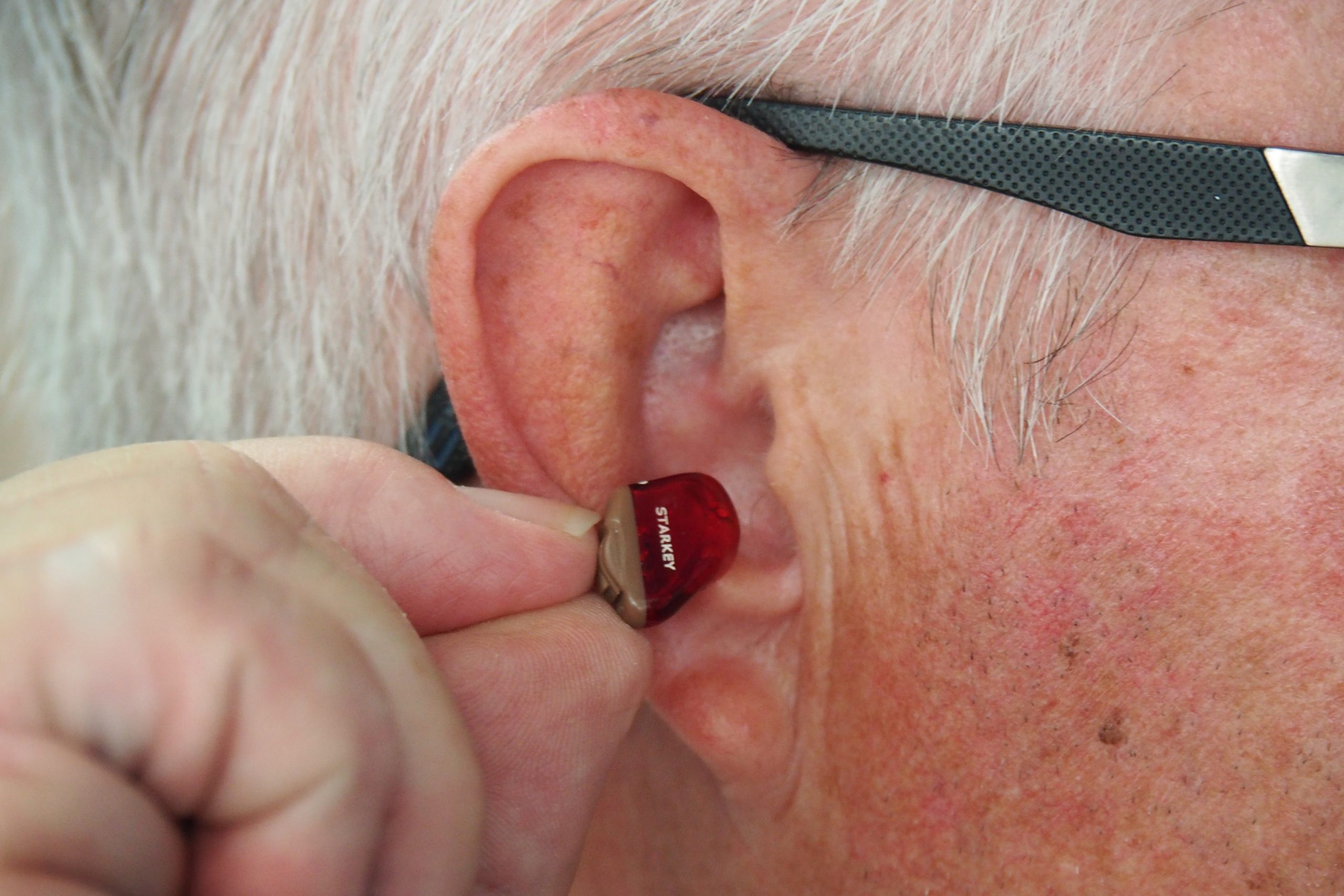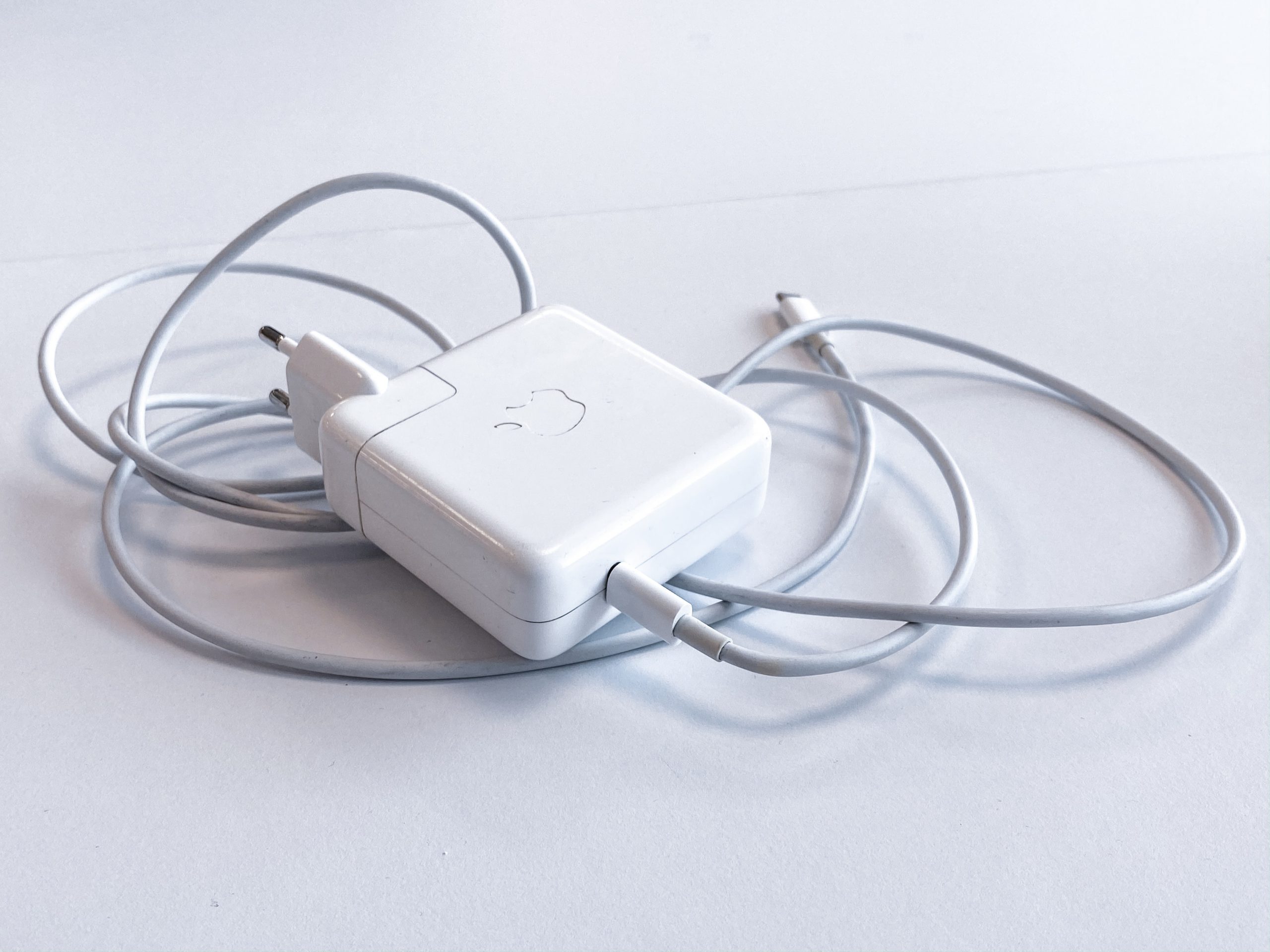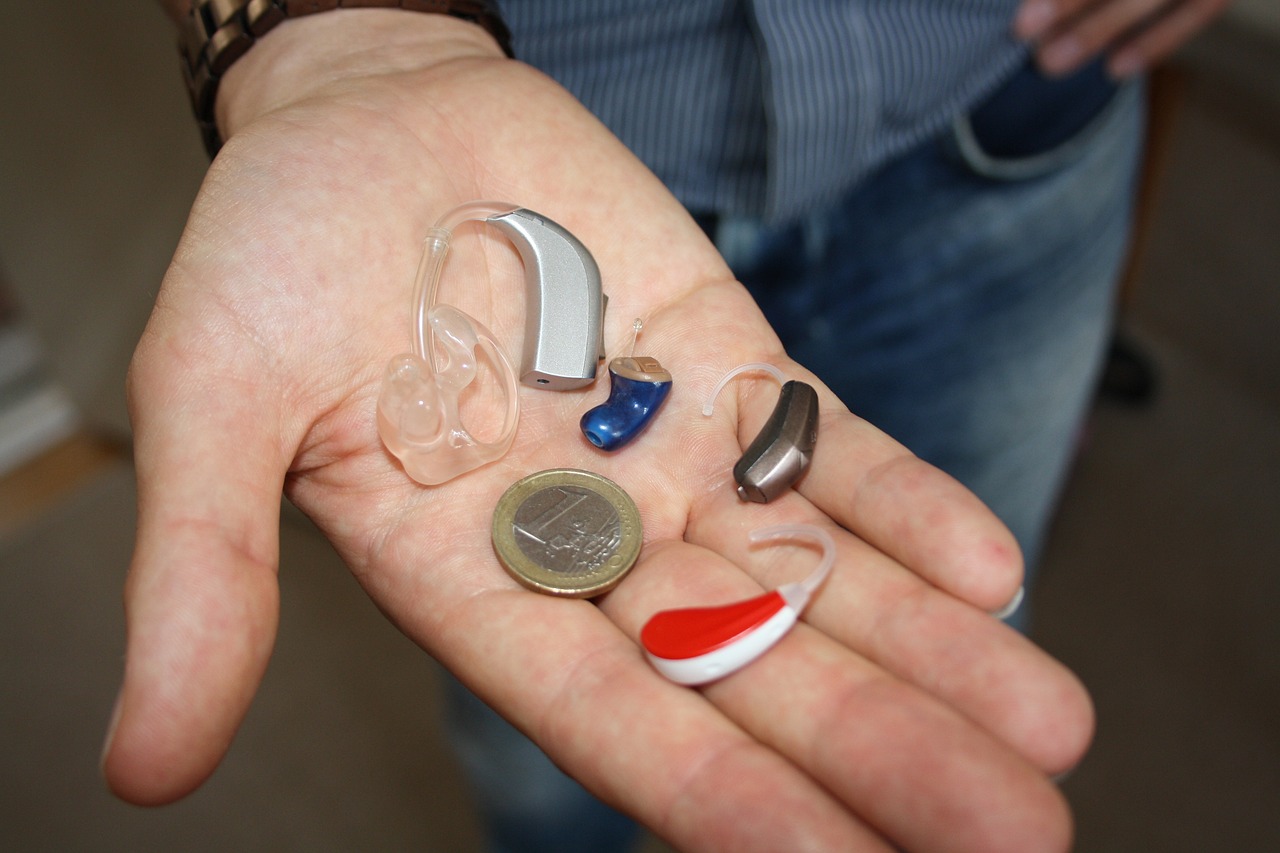
The smaller and less obtrusive cousin of behind-the-ear (BTE) hearing aids, in-the-ear (ITE) hearing aids are the other basic type of hearing aid.
If you dislike wearing things on your ear and are looking for a less noticeable hearing aid, then an ITE hearing aid might be for you!
Contents
What are in the ear Hearing Aids?
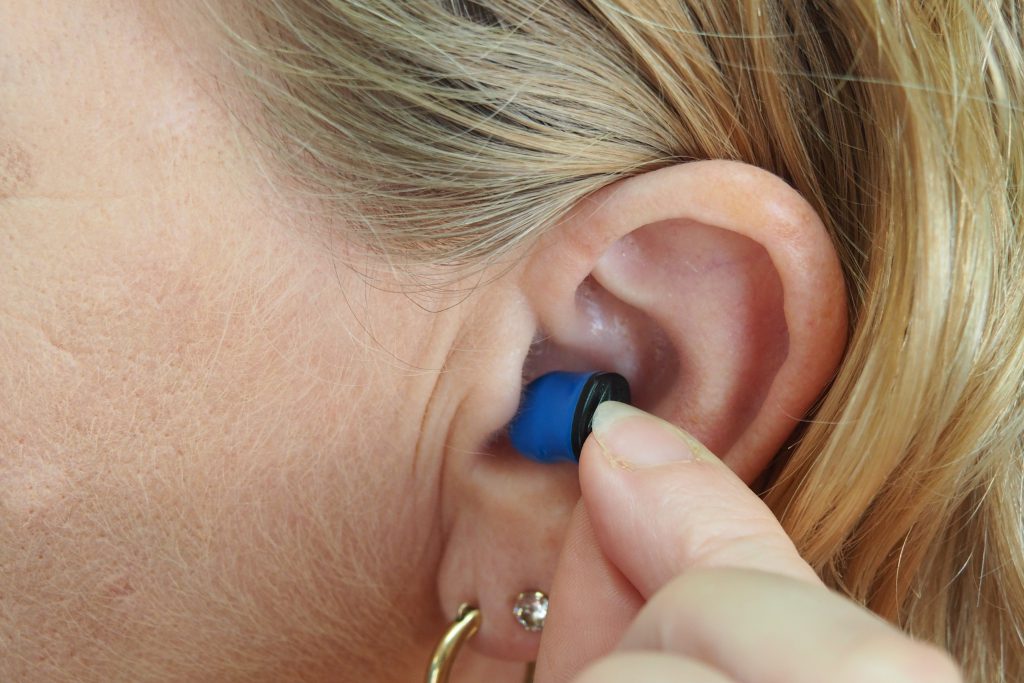
Unlike BTE hearing aids which consist of two different parts, ITE hearing aids are single-unit devices that are molded to fit your ear, based on a custom impression of your ear. All of the components fit into one single case. Depending on the specific type of ITE hearing aid, the unit can fit on the outer part of the ear or inside your ear canal. You can often choose the color of the ITE, to allow it to blend into and match the ear’s skin tone.
ITE hearing aids are typically for mild to severe hearing loss. If you require hearing aids for more severe hearing loss, such as profound hearing loss, then a BTE hearing aid is most likely your best bet.
While not as large as BTE hearing aids, most ITE hearing aids are still large enough to include features such as volume control and telecoil.
In The Canal (ITC) and Completely In Canal (CIC) Hearing Aids
ITE hearing aids themselves have a number of smaller variations, known as “in the canal (ITC)” hearing aids and “completely in canal (CIC)” hearing aids. While these are technically ITE hearing aids, there are a number of key differences. Please check out each article to learn more!
ITC Hearing Aids
Pros of in the ear Hearing Aids

ITE hearing aids may not be as discreet when compared to smaller models like ITC hearing aids, but their larger size still allows for stronger batteries, directional microphones, and features that can’t fit on smaller hearing aids such as volume control. They offer a very nice compromise between the size of smaller models and the functionality of BTE hearing aids.
Furthermore, ITE hearing aids are especially good for talking on the phone. Glasses and masks also are easily worn with ITE hearing aids as well.
Because ITE hearing aids sit inside the ear instead of behind or on top, they are also exposed to less wind and perspiration as well. If you’re an active individual who enjoys activities like running or just happen to live in a windy area, this might be one important thing to keep in mind.
Alongside features, choosing the hearing aid that matches your lifestyle is just as critical a decision!
Cons of in the ear Hearing Aids?
ITE hearing aids are usually not worn by children, whose growing ears will make it necessary to have the unit’s casing/mold replaced many times as they age. For children, BTE hearing aids are recommended, since the hearing aid components and mold are two separate parts.
Due to their smaller size, ITE hearing aids lack the power to help with the highest levels of hearing aid. For those with profound or worse hearing loss, BTE hearing aids, cochlear implants, or bone conduction hearing aids are your best bet.
The information in this guide has been written using the following reliable sources:
https://www.nidcd.nih.gov, https://myhealth.alberta.ca

